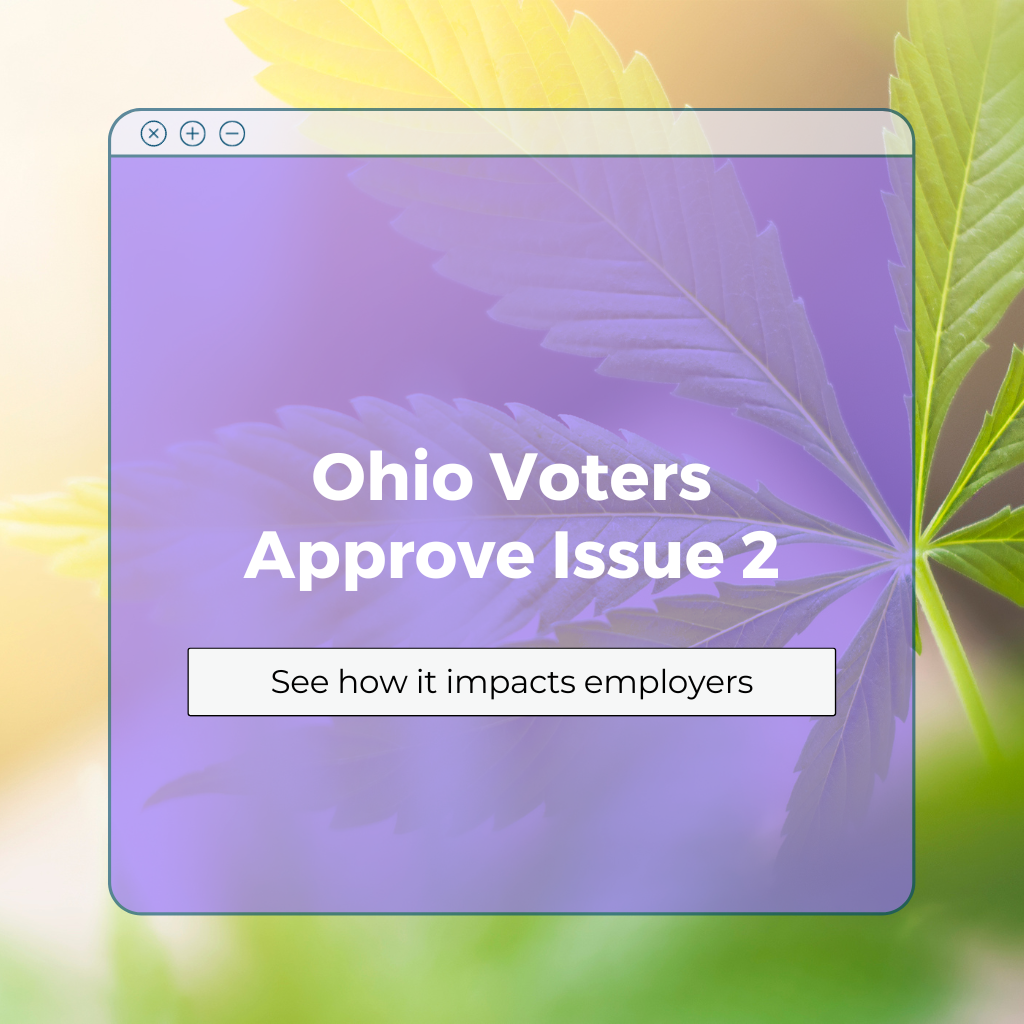Ohio voters approved a measure to legalize recreational marijuana on Tuesday. This measure, dubbed Issue 2, will legalize the cultivation, sale, possession, and use of recreational marijuana. As such, state residents 21 years or older may soon enjoy the benefits of this legalization and other regulations.
Some employers voiced concerns about how Issue 2 would affect their ability to address marijuana in the workplace. According to legislators, this decision would prove consistent with Ohio’s existing Medical Marijuana Control Program. As such, how they regulate marijuana use among current or prospective employees may not change for many. Though they can expect an increase in recreational marijuana use, Issue 2 protects the right to maintain drug-free workplaces.
Employers Rights
According to Issue 2, employers possess the right to:
- Maintain policies barring the use, possession, or distribution of cannabis in the workplace. Employers are also permitted to take action against employees’ impairment, even when caused by off-duty usage.
- Create and enforce drug-free workplace policies, including testing applicants and employees for cannabis use.
- Take adverse employment-related actions against individuals as a result of their use, possession, or distribution of cannabis.
Based on the above, passing Issue 2 would not affect how employers handle marijuana cases. As such, employers may continue barring the use or possession of cannabis while on duty or on the employer’s premises. It also allows employers to continue testing for marijuana in drug tests and addressing positive test results despite lawful and off-duty usage. Examples of addressing the results include adverse actions, such as disciplining, dismissing, or refusing to hire employees.
Exceptions for Federal and State
Furthermore, Issue 2’s regulations would not impact employers subject to federal requirements. Examples include those associated with a federal contract or the Department of Transportation. A similar exception allows those under state regulations to continue mandatory testing. Many speculate that passing this ballot measure means recreational marijuana use will stay in Ohio. Overall, Ohio legislators have assured employers that they may continue drug-free safety programs in their companies despite Issue 2’s approval on the ballot. The Ohio Bureau of Workers’ Compensation could ensure employers maintain the right to these voluntary programs.
Employers should review their drug policies and pre-employment processes to ensure they comply with current and future legislation. This necessity may prove crucial if Issue 2 passes and changes to include stricter regulations over sales, possession, and usage. For example, some states that have legalized marijuana use have developed strict restrictions for usage and how employers address the positive test results of marijuana use. California and New York are prime examples of how employers may take adverse action only if they prove that the employee tested positive for marijuana and worked while impaired.
